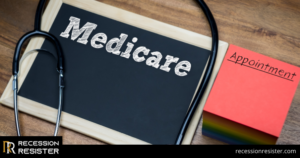A considerable number of individuals have ventured into entrepreneurship, completely abandoning the corporate world. Whether you have already departed from your office job or are contemplating doing so, acquiring a new health insurance policy is crucial.
A self-employed individual, as defined by the IRS, is someone who rents out their services to other companies and operates their own business. Presently, there are approximately 10 million self-employed individuals, and this figure is projected to increase in the upcoming years. This growth can be attributed to the surge of the internet and the emergence of small businesses that can be established with minimal or no initial investment.
While this may appear advantageous for your business, it also implies that you will no longer have access to company benefits such as health insurance.
What health insurance choices are available for individuals who work for themselves?
STATE OR FEDERAL MARKETPLACE
 It is possible for you to register for health coverage under the Affordable Care Act. Depending on your self-identified status, there are various plan options available for selection. Certain plans offer low premiums but can only be accessed between November 1st and December 15th. In case you miss this enrollment period, it is permissible to contact them and provide an explanation, as they are open to making exceptions in special circumstances.
It is possible for you to register for health coverage under the Affordable Care Act. Depending on your self-identified status, there are various plan options available for selection. Certain plans offer low premiums but can only be accessed between November 1st and December 15th. In case you miss this enrollment period, it is permissible to contact them and provide an explanation, as they are open to making exceptions in special circumstances.
MEDICAID
Government-aided medical insurance, known as Medicaid, can be applied for by individuals with household incomes below a particular threshold. This healthcare program strives to offer medical coverage to those in need.
Applications are accepted all year round with no specific deadline. It is important to review the eligibility criteria, as they vary by state.
MEDICARE
 This is yet another healthcare program available across the country, specifically designed for individuals aged 65 and older. Additionally, individuals who have received Social Security Disability (SSD) may be eligible to apply for this program, as long as specific conditions are met. Moreover, this initiative provides coverage for individuals afflicted with ALS (Lou Gehrig’s Disease) and those with End Stage Renal Disease (ESRD).
This is yet another healthcare program available across the country, specifically designed for individuals aged 65 and older. Additionally, individuals who have received Social Security Disability (SSD) may be eligible to apply for this program, as long as specific conditions are met. Moreover, this initiative provides coverage for individuals afflicted with ALS (Lou Gehrig’s Disease) and those with End Stage Renal Disease (ESRD).
PRIVATE INSURANCE
Private insurance, which covers a wide range of medical conditions and is easily approved, can be obtained through an insurance agency.
The sole drawback is that the premium falls on the pricier end, however, you can opt to put your money into a health savings account, where it can be deposited tax-free.
THROUGH A FAMILY MEMBER
If your partner or spouse is covered by a company insurance plan, there is a high likelihood that you can also be included in the coverage. You will be required to make an additional payment to join the plan and will have access to all the available services.
The requirement of being legally married is not mandatory, although it varies among different companies. Additionally, individuals below the age of 26 can benefit from their parents’ health insurance plan, thanks to the Affordable Care Act.
It is crucial to have health insurance throughout all stages of life. Prioritize selecting an insurance plan that provides comprehensive coverage and is affordable for your budget.
HOW TO OBTAIN INDIVIDUAL HEALTH INSURANCE
 If you work for yourself, you can start your search by seeking an “individual” health insurance plan, which specifically covers you and/or your dependents, instead of a “group” plan that provides coverage for your employees.
If you work for yourself, you can start your search by seeking an “individual” health insurance plan, which specifically covers you and/or your dependents, instead of a “group” plan that provides coverage for your employees.
Caution should be exercised as individual health insurance can be costly, particularly with the enactment of the ACA. With the policy changes brought about by the ACA, insurance companies are no longer able to consider medical history when approving policies or determining premiums.
Consequently, both healthy and less healthy individuals are charged comparable rates, which can result in increased premium rates for the healthy and decreased rates for the less healthy. Ultimately, this aims to achieve equality in rates paid by all individuals.
Typically, there are two ways to come across individual health policies.
- Call an independent agent or broker who specializes in health insurance. You may want to ask your colleagues, peers, and friends to recommend someone.
- Search online for your state’s health insurance exchange, which was created expressly in accordance with the ACA. If your state doesn’t have a health exchange, visit the federal government’s site and click on “Get Coverage.”
